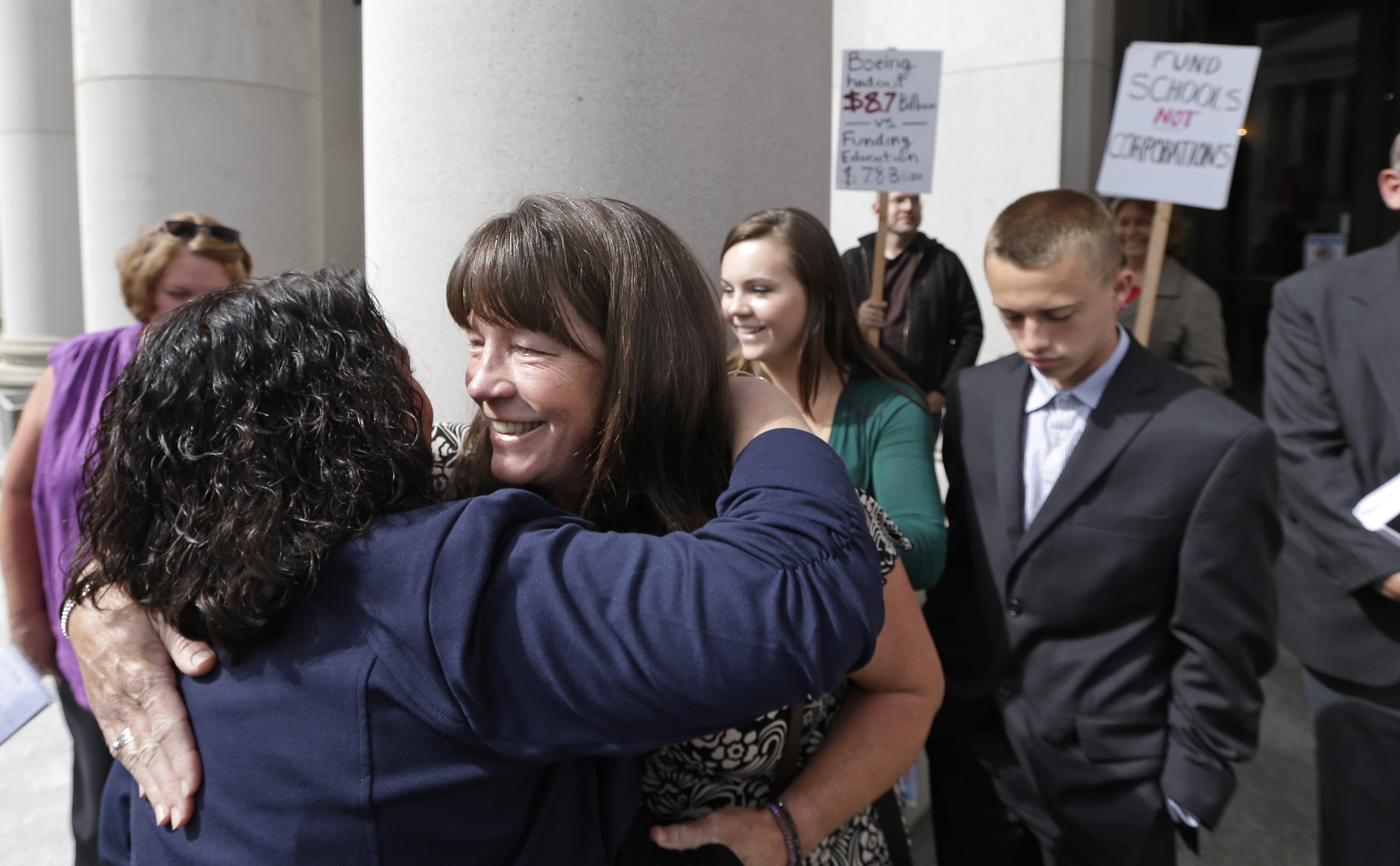When the McCleary family of Jefferson County and the Venema family of Snohomish filed a lawsuit against the state of Washington over education funding in 2007, arguably no one expected it to still be unresolved almost a decade later.
“When we filed this lawsuit, the Venemas and McClearys both had kids in public schools,” the plaintiffs’ Seattle-based attorney Tom Ahearne said. “It’s been delayed and delayed; there’s only one kid left.”
The youngest of the two McCleary children is now a junior in high school; he was a second-grader when his family sued. The lawsuit evolved into something much larger over time, eventually becoming part of the state Supreme Court’s landmark McCleary ruling, which ordered the state to fully fund basic public education services.
Lawmakers in Olympia have been ordered by the Supreme Court to fulfill the requirement by the 2017-18 school year. That school year is no longer far away; counting the upcoming 2016 shortened legislative session, there are only two sessions left for lawmakers to craft and realize a plan.
Will they make progress come January? Is there hope they will make the imminent deadline? Reactions from lawmakers and outside parties is mixed.
Ahearne, for instance, is skeptical they can meet the deadline.
“Based on their track record so far, politicians have not had the guts to uphold the constitution,” he said. Ahearne’s quote refers to the state constitution, which says “it is the paramount duty of the state to make ample provision for the education of all children residing within its borders.”
Given the Legislature approved a two-year budget earlier this year, the 2016 session will be shorter and lawmakers are working toward a supplemental 2016 budget. Odds of a massive increase in education funding this upcoming session are low.
Governor’s priorities
In his 2016 budget proposal, Gov. Jay Inslee did list several priorities regarding education. At the top is a plan to increase teacher pay in order to recruit and retain teachers in light of a crippling teacher shortage statewide. Under his proposal, starting pay for beginning teachers would go up from $35,700 to $40,000 per year, while all other teachers would receive a 1 percent raise.
Under Inslee’s plan, the increases would be paid through the elimination of four tax breaks.
Ahearne acknowledged bumping up teacher salaries is a small victory, but not yet the big victory his plaintiffs have been waiting for.
“Any increase is better than none at all,” he said. “But to say they are getting close (to fully funding K-12) is a joke.”
Rep. Norm Johnson, R-Yakima, is a former educator; he was a teacher, counselor and principal in Mabton and Toppenish.
He also agrees with the need to address the teacher shortage, but Johnson said the governor “should be concerned with the entire McCleary and not just one portion.”
Johnson believes lawmakers will meet the deadline given they have two more sessions to invest more in education. He anticipates more money going into K-12 this session.
“We have until 2018 to fully fund education, and we’ve certainly made efforts to reach it,” Johnson said.
The 2015-17 biennial budget added an additional $1.3 billion into K-3 class size reduction, all-day kindergarten, maintenance, supplies and operating costs. However, a November statement from state Superintendent Randy Dorn said legislators must pass an additional $4 billion to meet McCleary.
‘Everyone has a piece’
“The solutions are there,” added Rep. Chris Reykdal, D-Snohomish, such as new taxes or shifting away from an overreliance on property levies. “Some of them are Republican solutions and others are Democrat solutions. But everyone has a piece (of the puzzle).”
The west side lawmaker is vice chair of the House Education committee; he, too, is running for state superintendent in 2016. Like Johnson, he reassured skeptics that Olympia will come up with a solution. But first, legislators need to come up with a plan on how to get there; the Supreme Court has fined the Legislature $100,000 a day until they come up with said plan.
Reykdal said a finalized plan next session wouldn’t completely solve the problems on fully funding K-12 education, but it would at least set a timeline for these “big ideas.” He said there is no doubt there is some form of bipartisan support for meeting McCleary.
“Do I think that we’ll be funded by 2018? I think we’ll make some significant progress in getting every student funded,” added an optimistic Steve Myers, superintendent for Educational Service District 105.
Addressing some of the smaller items on the education agenda such as the teacher and substitute teaching shortage will help, he said. There is optimism reforms in the retirement system will finally come to fruition.
Such areas include changing rules that prohibit some retired teachers from working as substitutes until age 65, or limiting the number of hours per school year a substitute can work. A recent Yakima Herald-Republic story highlighted how a West Valley substitute will leave his special education substitute role about two-thirds into the current school year or risk altering his pension benefits, despite the lack of substitute teachers in West Valley.
“We have (retired) math teachers and science teachers that could help us” if changes were made, Myers said.
Reykdal said the education committee would look into pension and retirement reform for teachers, noting how changes would alleviate the substitute crisis.
“We have an immediate teacher sub shortage,” said Reykdal. “We can solve a lot of that by fixing pension reform. We have to let former teachers sub sooner.”



